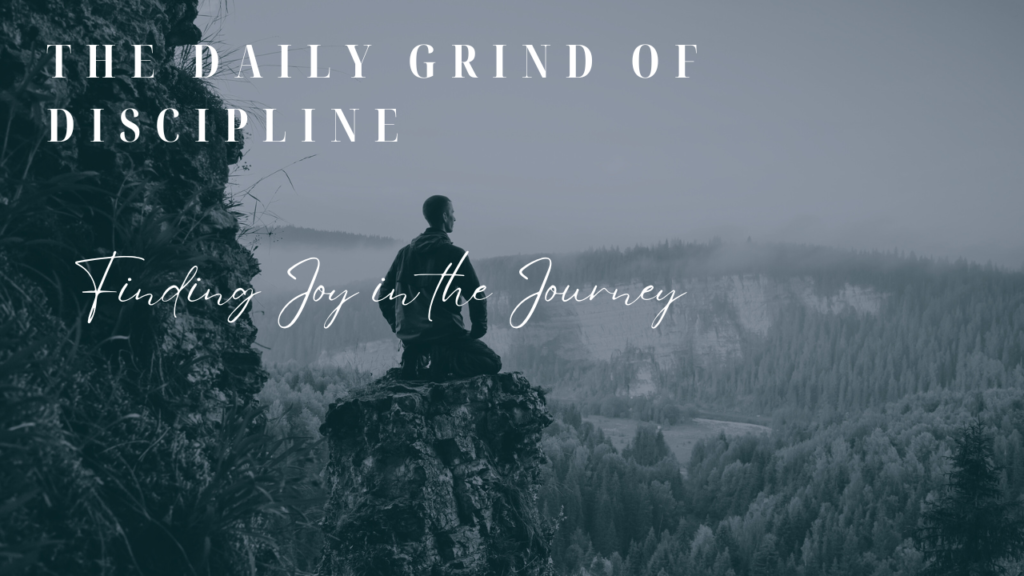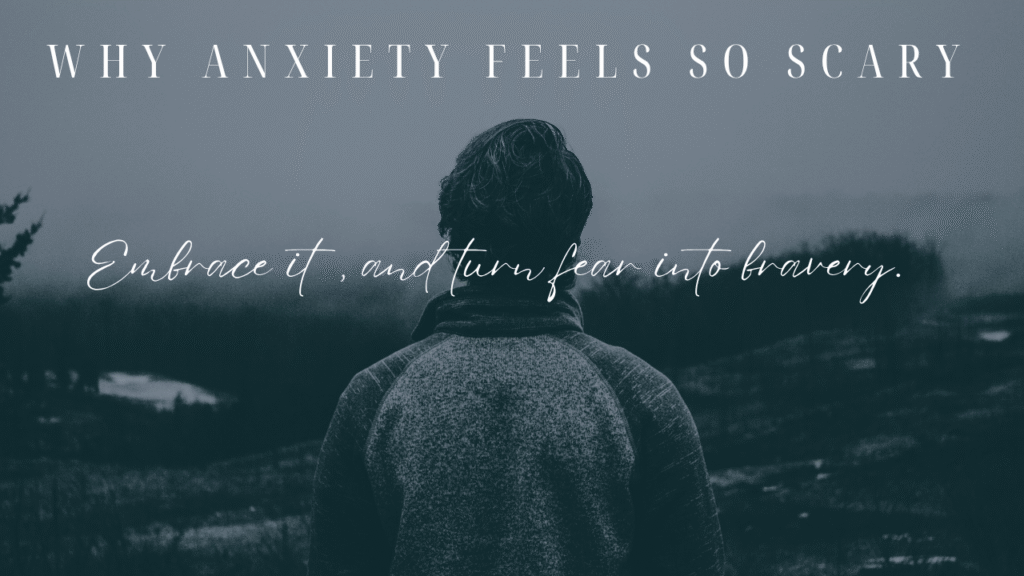Discipline rarely feels good in the moment.
It’s not exciting. It doesn’t give you a dopamine rush. It doesn’t get applause or show up on your highlight reel. Most of the time, it feels like choosing the hard road—again—with little to show for it.
You wake up early when your body begs for sleep.
You say no to distractions when everything inside you wants the escape.
You go for the walk. Read the Word. Finish the task. Put the phone down. Shut the fridge. Show up when no one else is.
And it feels like no one sees it.
But God does. And over time, you will too.
Discipline isn’t glamorous. It’s not trendy. It won’t get you followers. But it will get you free.
And somewhere in the middle of all that repetition and resistance, something starts to shift—not just in your habits, but in your soul.
You begin to find joy—not because it gets easier, but because you get stronger.
Discipline Isn’t Punishment—It’s Formation
Somewhere along the line, a lot of people learned to associate discipline with punishment. Maybe it was the way they were raised. Maybe it was the guilt-heavy version of faith they grew up with. Maybe it’s just how the world talks about self-denial, like it’s a kind of self-inflicted suffering.
But discipline isn’t punishment. It’s training.
It’s choosing the long game over the short thrill.
It’s saying, “I care more about who I’m becoming than what I feel like doing right now.”
You don’t do it because you hate yourself—you do it because you want more for yourself than what your emotions offer in the moment.
And yeah, it’s hard. Of course it is. But it’s not cruel. It’s not harsh. It’s not you trying to force yourself into some miserable routine just to prove you’ve got grit.
It’s you learning how to say no to the noise so you can finally hear what actually matters.
The Most Important Habits Are the Most Boring at First
Nobody claps for brushing your teeth. Or reading one chapter. Or making your bed. Or resisting that second helping of dessert. These things seem small. Insignificant. Easy to skip.
But that’s exactly why they matter.
Because life isn’t built in the big, dramatic moments—it’s built in the daily choices. The quiet yes. The silent no. The repetition that feels like it’s not doing anything, even though deep down, it’s forming something in you.
You want results? This is how they come.
You want peace? Structure creates it.
You want strength? It’s forged in the consistency that no one sees.
Stop waiting for it to feel exciting. It probably won’t. At least not at first. But it’s worth it.
Because the very thing you keep calling “boring” is probably the path to the life you say you want.
Don’t Expect Emotion to Carry You
Motivation is a terrible long-term partner. It flirts with you in the beginning, gets you all excited, and then leaves the second things get inconvenient.
You can’t build your life on that.
You’ll have days where you don’t want to wake up early. Where reading Scripture feels dry. Where that workout feels impossible. Where everything in you screams for comfort and ease.
And that’s where discipline steps in.
Not as a drill sergeant, but as a reminder: You’re not led by your feelings anymore.
You’ve already decided.
You don’t have to feel like doing it. You just do it.
And on the other side? That quiet sense of integrity. That inner strength. That peace that comes from knowing you didn’t fold, didn’t run, didn’t settle.
Feelings will catch up. Eventually. But they don’t get the first word.
You Can Learn to Love the Process, Not Just the Outcome
Everybody wants the results.
The strength. The peace. The clarity. The confidence.
But not many people want the grind that gets you there.
Because the process feels slow. Uneventful. Like it’s not working.
But this is where joy begins—not in achieving the thing, but in becoming the kind of person who shows up even when it’s hard.
You don’t need everything to go perfectly. You just need to keep showing up.
One quiet morning at a time.
One task at a time.
One small act of obedience at a time.
That’s where the growth is. And strangely, that’s where the joy starts to rise. Not from everything being easy or fun—but from knowing you’re not who you used to be.
From watching your “default” start to change.
From feeling that inner shift where you stop quitting on yourself every time it gets hard.
That’s joy. Real joy. Not emotional hype—but a steady, unshakable gladness that runs deeper than circumstance.
Grace and Discipline Aren’t Opposites
Here’s where people get it twisted: they think if you’re living by grace, discipline doesn’t matter anymore. Like grace means you don’t have to try. Or that effort somehow equals legalism.
That’s not grace. That’s passivity in disguise.
Grace doesn’t remove effort—it fuels it.
Because of grace, you’re not striving to earn God’s love—you already have it.
Because of grace, you’re not working to prove anything—you’re working from a place of peace, not for it.
And because of grace, you can fail, get back up, and keep going without spiraling into shame or quitting altogether.
Discipline without grace will crush you.
Grace without discipline will stall you.
But grace-filled discipline? That’s where the good stuff happens.
That’s where habits become holy. Where structure becomes sacred. Where ordinary routines become daily altars of worship.
Start Small, Stay Consistent, Don’t Quit
You don’t need to overhaul your entire life overnight. You don’t need to fix everything by Friday. You just need to stop lying to yourself about how “one more time” won’t hurt.
It does hurt.
Maybe not right now. But it chips away at your belief that change is possible. And once you stop believing you can change, it’s only a matter of time before you stop trying.
So start where you are.
Pick one small thing. One habit. One routine.
Show up for it. Every day. No matter how you feel.
Let the discipline build. Let it grow slow.
You’re not building hype. You’re building something solid.
And with time, what once felt like a grind will feel like a rhythm.
Not easy. But natural. Familiar. Grounded.
And in that rhythm, you’ll find joy—not because life got easier, but because you stopped giving up.



